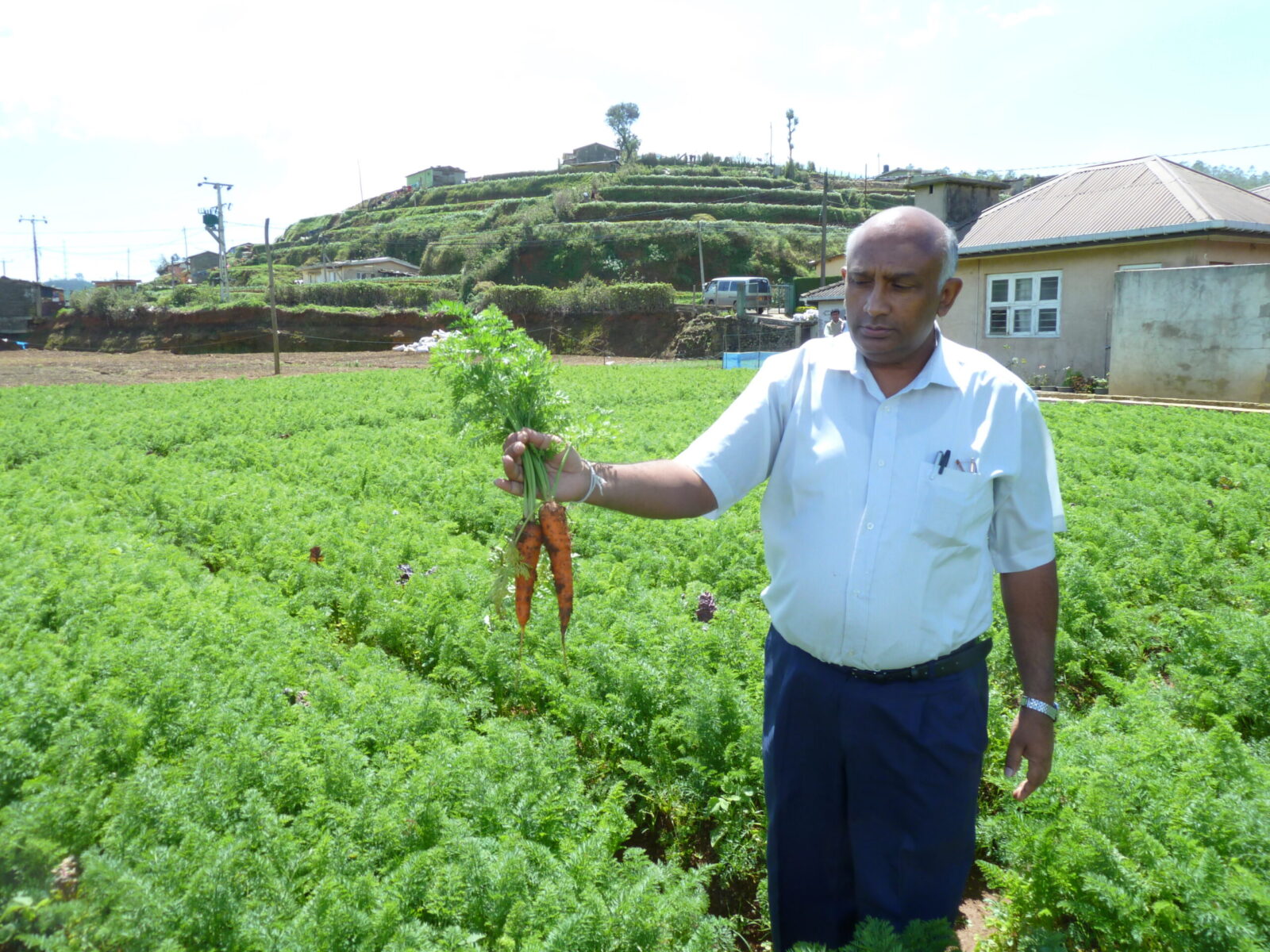Ravi Sangakkara
The good soul of Sri Lanka
Crop production in the tropics is a fascinating business. For more than 20 years, Professor Ravi Sangakkara taught ETH students about this topic. However, he achieved much more than that: as an open, approachable person, a practising Buddhist and a researcher and teacher who had gained experience on all continents of the world, over the years, Ravi Sangakkara has impressed hundreds of ETH members, who were able to learn a lot from him.
I met him in 2010. A small, rotund gentleman whose facial expressions, body language and descriptions were as clear as the waters of a mountain stream. When necessary, this water flowed quickly and made its way persistently – even through rock. In 1977, he initially started out as lecturer before later becoming Senior Professor of Crop Science at the University of Peradeniya in Sri Lanka. He was held in the highest respect; his students looked up to him and his advice was law. He often conducted negotiations with the government; his research work took him to over 50 countries around the world.
But he could just as well simply enjoy the world around him. In these moments, he resembled a sweetly bubbling stream flowing gently, reflecting the beauty around him. He enjoyed talking about anything and everything over a good meal, listening, even telling an anecdote himself from time to time. But above all, he loved to show every visitor from Switzerland the beauty of his home country.

Warm host for students and colleagues from Switzerland
Over the years, many students spent months with him in Sri Lanka for their projects. He coordinated academic visits and private trips with incredible intensity and cordiality. During visits to the research fields, he discussed with both the staff and local farmers every detail of their questions about cultivation and plant breeding.
During a visit to Sri Lanka, he showed me and some of my colleagues research projects on mixed cultivation of maize and beans, potato cultivation at high altitudes, and cultivation of vegetables that were considered exotic in Sri Lanka, such as carrots. Research projects on tea, rice, yams and smallholder horticultural mixed crops (home gardens) were also part of his research portfolio. There was an incredible amount to learn from him – and he himself was also always eager to learn.
A 20-year sabbatical at ETH
The reason why he returned to ETH every year from October to December for over 20 years was, on the one hand, this inquisitiveness. He wanted to sit in the office and read, use the library, research, occasionally give a lecture at ETH or at the School of Agricultural, Forest and Food Sciences in Zollikofen, write manuscripts and discuss science. He enjoyed this time – it was an annual sabbatical for him. The grey and foggy weather did not bother him – on the contrary: it made it even easier for him to immerse himself in science. On Sundays, he went to the temple in Adliswil. At private events and Christmas or doctoral parties, he was a reserved but approachable and always pleasant guest.
The other reason he enjoyed these annual stays was that he could be a normal person among many here – no one special. The responsibility and respect he was given in his home country gave way here to a collegiality that connected him equally with everyone, from students to professors. It was just really an annual sabbatical for him, where he could return from his role of incumbent to that of postdoc and carefree person.
Tolerance for other customs
For him, a holiday was lying in bed with a cup of tea and reading a good book. As much as he liked Switzerland and the Swiss, he never felt the urge to climb mountains or race down snowy slopes on narrow boards. He also wondered how the students could make it in professional life later on – after all, everyone who did a study project with him in Kandy always had meticulous travel and leisure plans for the coming years. He was happy for the students and their plans and accepted them without devaluation – but he often referred to the fact that you could only progress through work.
The intense care he gave to everyone was also based on the fact that he lived alone – although with staff, as was customary in his circles in Sri Lanka, but without a partner. This full wellspring of empathy could benefit all the more those who became acquainted with him.
He died much too early at the age of only 63 in 2014 in an accident in Kandy in Sri Lanka.